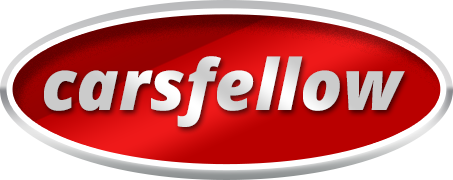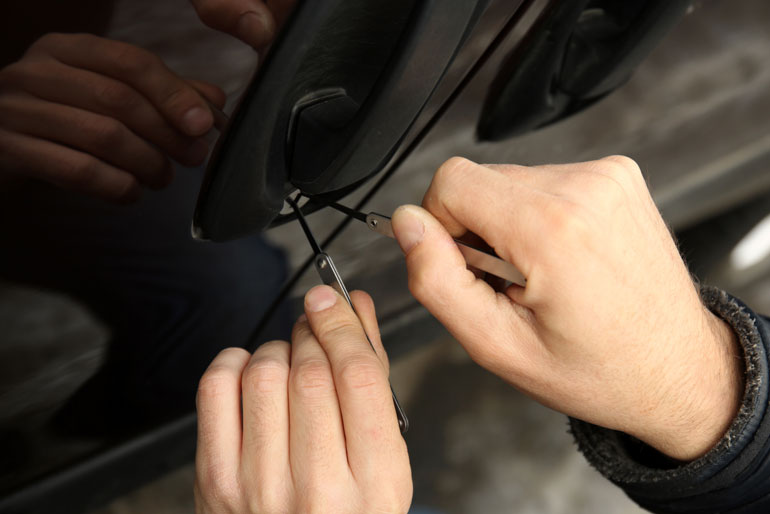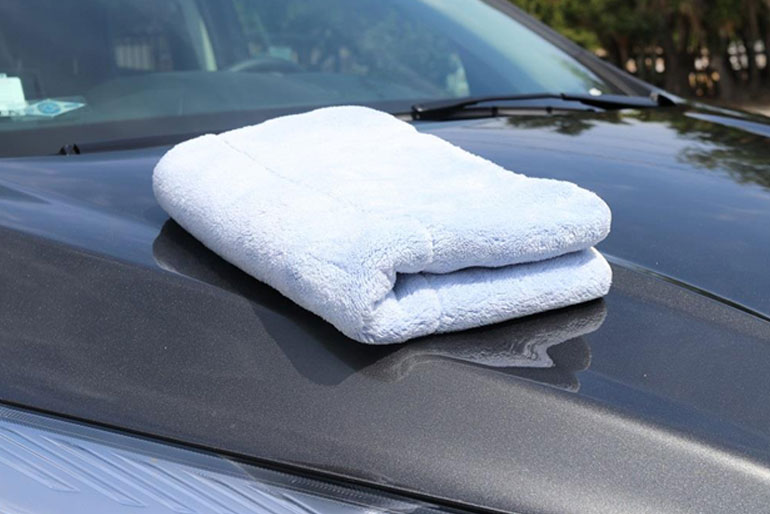Choosing the best cleaning materials is the key to good maintenance. Just like we use quality products for our hygiene, why wouldn’t we apply the same principle to our cars? Since we don’t always have the time (or knowledge) to give them the best detailing available, professional services are there to give your vehicle an impeccable appearance even after many miles on the road. It’s even better if you contribute with some DIY solutions to bring out that attractive luster.
One underrated way of achieving this is using microfiber towels. Microfiber, you say? What’s wrong with regular towels? All they do is wipe; there can’t be that much difference between towels. However, those who use microfiber know the difference very well. It’s one of those things where once you come across the most effective solution for a task, there’s no going back to inferior methods. As a cleaning textile, microfiber trumps other materials for a few reasons we’ll explore below. Visit this website to find out more.
Superior Structure
When wiping any surface, not just car bodies, you want to be quick and efficient. Of course, you’ll hear folks say they enjoy cleaning up, but it gets tiresome and dull after a while. That is if you’re using bad materials that take ages to do the job. What makes microfiber towels good is the structure of the fibers. The key to their absorbing quality is that microfibers are much thinner than human hair, resulting in a high volume of tiny threads. Compared to cotton cloths, for instance, the blend of polyester and polyamide or nylon (the usual choices for microfiber towels) does a way better job.
Another great thing about these towels is their eco-friendly nature. Just think about all the times you’ve had to use poisonous chemicals for some stubborn stains. Other than simply irritating the eyes or throat, they can lead to more severe health issues in people with weaker immunity. Microfiber doesn’t need any chemicals to make it work – it’s enough to add water. Some scrubbing later, you get a shiny, pristine surface that will dazzle anyone who lays eyes on it.
One more distinctive feature of microfiber cloths adds to their quality. Like socks on a carpet, highly dense hairs produce a charge that pulls in and traps dirt particles. Washing the cloth breaks this static charge and releases the particles. The combination of ultra-dense fibers and static charge makes microfiber cloths and pads the biggest threat to filth, especially on easy-wiping surfaces like car bodies. Go to https://www.popularmechanics.com/cars/g37542401/best-microfiber-car-cloths/ for more.
Use on Vehicles
There’s a reason why microfiber textile is a favorite of detailing services. It’s simple: just like they want the best materials for coating or waxing, they want the best wiping cloths. They can be used repeatedly, both in wet and dry situations, without fail. While other, rougher materials might scratch the paint, microfiber poses no risk. Let’s check out a few common examples of cleaning cars with microfiber towels.
The biggest fear of people who scrub is chipping the paint. And if you get carried away with a coarse cloth, this is entirely possible. But our tiny little fibers can take hardcore scrubbing without any fear of damage. Even with the most tenacious dirt, mud, and grime, the cloth will make it disappear if you apply enough pressure. This way, you’ll save your wrists and nerves, plus you’ll bring out the brilliance in your vehicle.
The trapping ability of these towels is advantageous for a couple of reasons. They can successfully disinfect the interior and exterior of your car, eliminating germs and guarding your health. Also, they are excellent for dry-dusting, where you wipe any surface (windows included) to remove even the tiniest speck of dust. As you can see, shiny is good, but shiny and healthy is even better.
Besides the methods we mentioned, you can also do wet-washing and polishing to your heart’s content. It’s a real pity not to take advantage of microfiber’s versatility, absorbency, and durability; they impact any situation.
Avoiding Cross-Contamination
This is an issue in public facilities, particularly in healthcare. Namely, low-quality cleaning cloths scatter bacteria all over the place, a potential disaster for patients and medical staff alike. The same goes for careless car cleaning: it’s easy to transfer dirt from the vehicle inside the household with a non-absorbent cloth. You can avoid these risks with microfiber technology: we already saw its superior ability to trap microorganisms, preventing them from wreaking havoc. Click here for more.
We should also mention microfiber flat mops, which you can employ wet or dry on any hard floor. Plus, they have attached reservoirs, so you won’t have to carry buckets around the old-fashioned way. Faster cleaning means you can cover a lot more territory in one day, so you can look forward to your next scrub session.
Saving Money
Apart from providing first-rate cleaning, microfiber is cost-effective. Even though they cost more than traditional materials, this means nothing if you think long-term. A bad cloth will end up in the trash after only a couple of uses, but microfiber is here to stay. Also, the absence of chemicals and other toxic agents is essential in the long run. So, by investing in microfiber, you’re not only getting the best cleaning option available: you invest in your well-being as well.
What to Choose?
It takes a bit of research to find the right towel for you. That’s because there’s more than one type available, based on the structure. You should always look for a towel with a 70/30 or 80/20 polyester to polyamide ratio. Finding a top-notch provider of microfiber towels for car will provide you with valuable free advice, so you won’t bang your head wondering if you made the right choice. Looking up reviews is the fastest way of determining if you’re dealing with professionals.
The Verdict
When you consider all the benefits of microfiber technology for your vehicle, it’s clear you don’t have to look further. Experts agree unanimously on its excellent absorbent qualities, longevity, reusability, and safety. It has become standard procedure in Europe, but the US is catching on fast. People realize its value and are willing a spend a few bucks more for a massive leap in quality.







